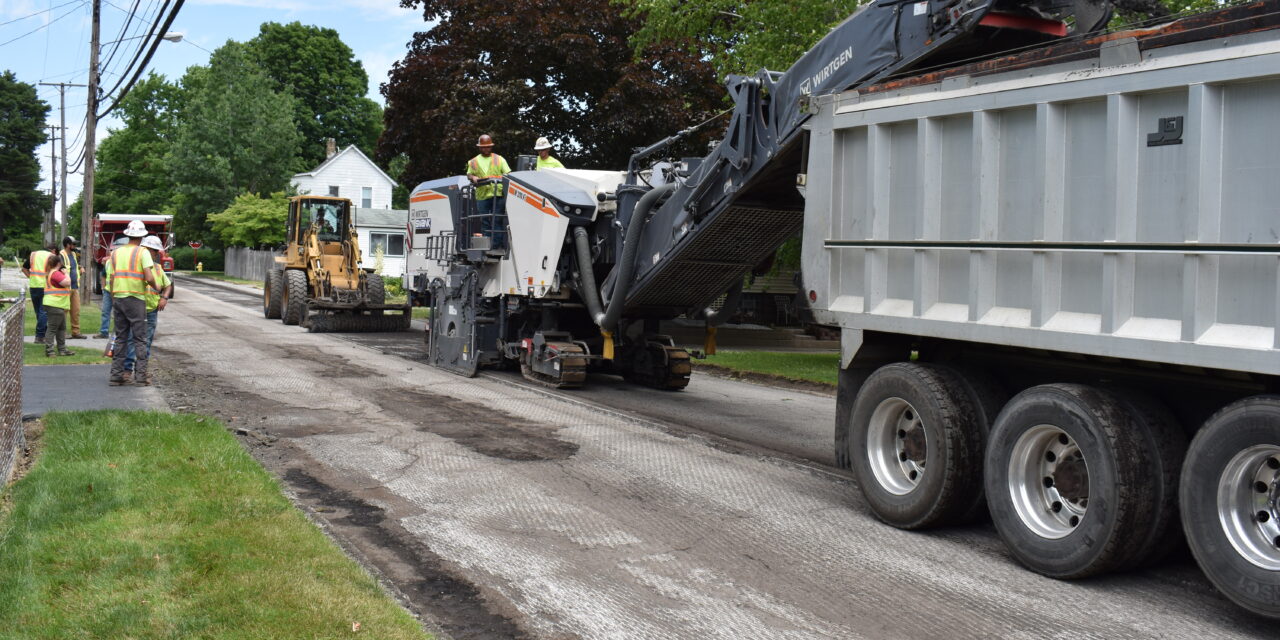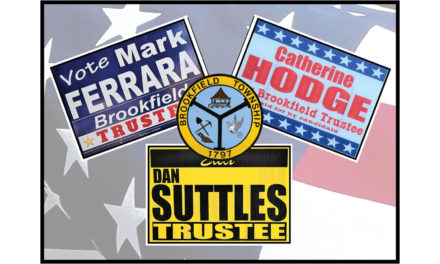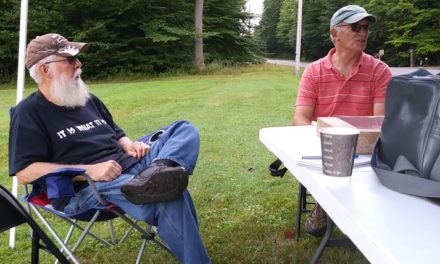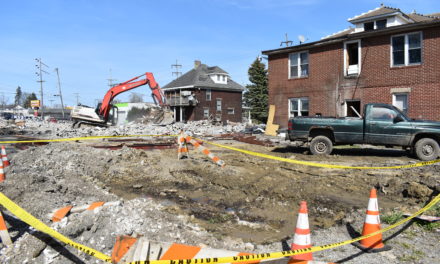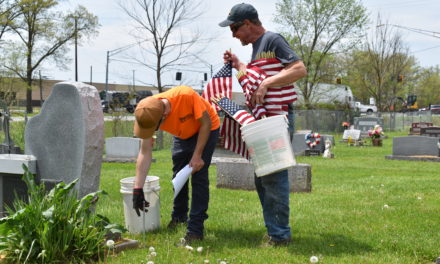This story was updated on Aug. 2 to correct a mistake made by NEWS On the Green as to the dollar value of the millings.
Brookfield Township has a policy not to work on unaccepted roads except to plow snow when three or more inches have fallen.
The trustees have given their blessing for the road department to perform limited maintenance tasks on some unaccepted roads.
This came about because the township will be stockpiling the road millings when Syme Street is paved this summer. The top two inches of pavement will be removed from Syme by a milling machine that cuts the pavement into smaller chunks.
The trustees on June 6 approved a plan forwarded by Trustee Mark Ferrara to use the millings on unaccepted roads.
Unaccepted roads are thoroughfares deemed open for public use but that have not been accepted by a government for public maintenance.
Some years back, township trustees decided not to work on unaccepted roads because they didn’t have the money to properly maintain the accepted roads, and trustees are under no legal obligation to work on unaccepted roads, said Road Supt. Jaime Fredenburg.
With the trustees’ recent action, the road department will apply the millings to unaccepted roads and grade the roads. The trustees left it up to Fredenburg to decided what roads are worked on and when the work will be done.
Fredenburg noted there are about 20 unaccepted roads in the township.
“If there’s ever a win-win, now’s the time,” Ferrara said. “You’re looking at probably $500 a truckload, with delivery, for every load of milling they take off, so if you do the math, we’re probably in excess of $25,000, at least, that we can take those dedicated funds without actually writing a check and put them to a good use.”
“I think this will be a step to show our constituents, ‘Hey, we’re trying to meet your needs in a very cost-effective way,’” Ferrara said.
 Trustee Dan Suttles said he understands that the township is not obligated to work on unaccepted roads, but noted that people who own property on unaccepted roads pay taxes.
Trustee Dan Suttles said he understands that the township is not obligated to work on unaccepted roads, but noted that people who own property on unaccepted roads pay taxes.
“These roads, some of them are impassable,” Suttles said. “If that ambulance today has to go up some of these roads, or our police department, that might limit their response, increase their response time. Those people that live there have an emergency, it’s a shame but we can’t get to them because of the conditions of the road. I think it’s a good idea to do this.”
Fredenburg warned the trustees that they could be opening a can of worms by approving work on unaccepted roads.
“Years ago, they made a motion to not work on unaccepted roads, because we’re in the same boat we are now: We don’t have enough” money, Fredenburg said. “That’s the reason that that board at the time decided we wouldn’t spend money on those roads, because we can’t afford to spend money on the roads we’re required to by law to take care of. I just want you to be aware of the pickle we’re getting ourselves into. We’re back into working on those roads again, there’s all kinds of secret little roads out there that are gonna pop up and people go, ‘Hey, what about my road?’”

